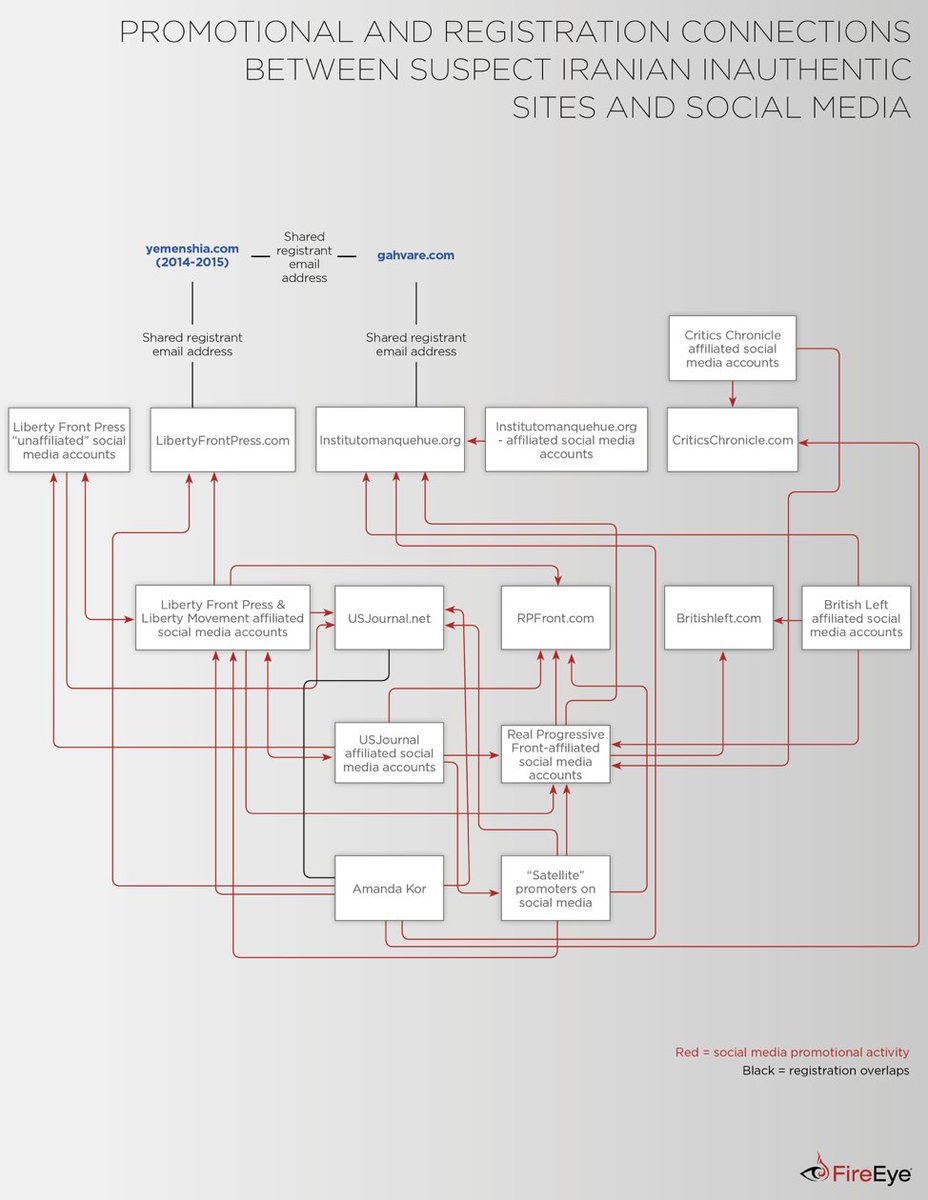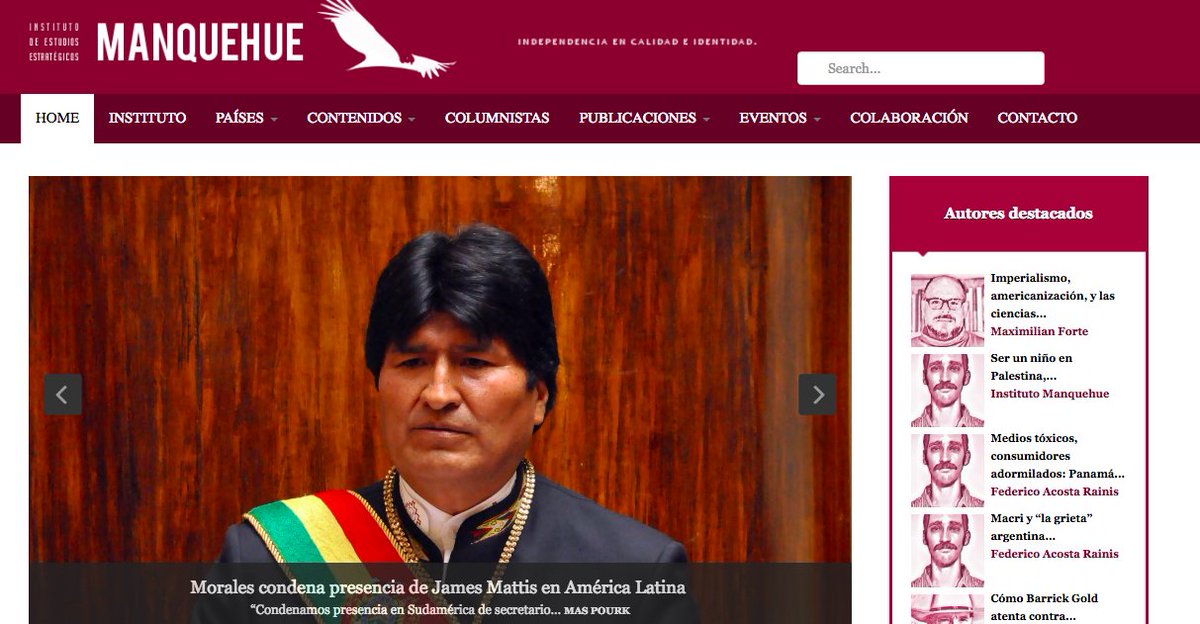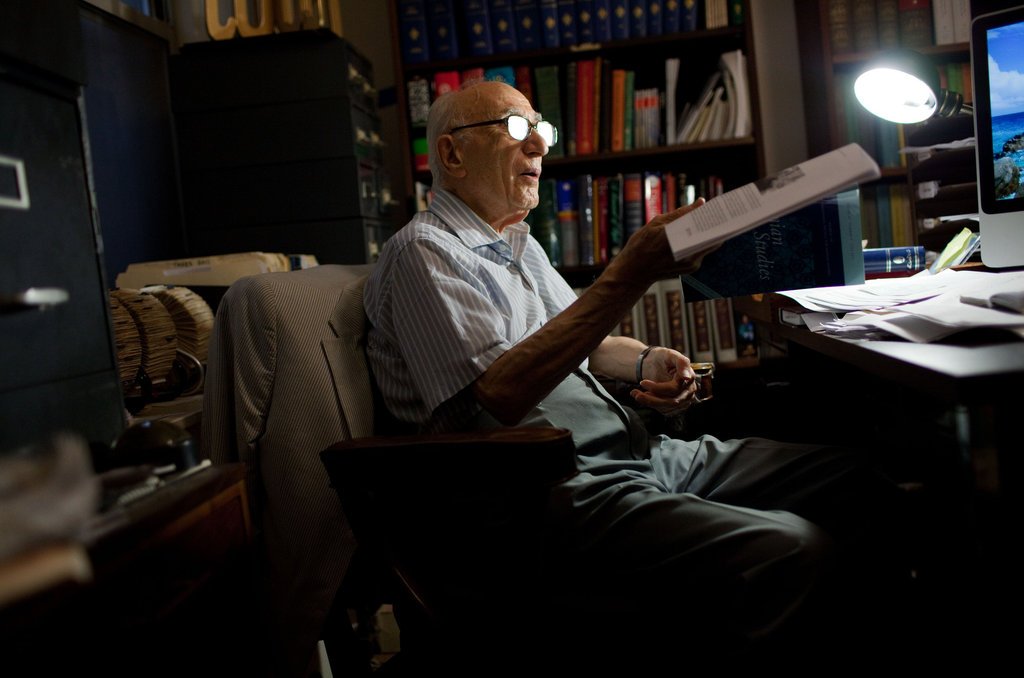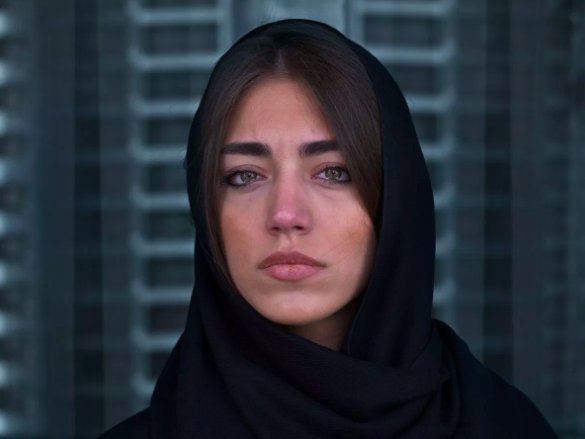1. @Najmeh_Tehran, the journalist who wrote this piece, is immense. This is an issue she has been covering for years on the ground in #Tehran. You and colleagues at @FDD have cited her reporting in papers, briefings, and testimony. But let's put that aside for a second.
https://twitter.com/mdubowitz/status/1019991481443078145
2. Maybe we can find another source that's "capable of writing accurately." How about Ken Katzman, who @FDD has welcomed to its events as "a foremost expert on Iran’s Revolutionary Guard Corps and sanctions policy at Congress’ think tank, the Congressional Research Service."
3. The phenomenon described in @Najmeh_Tehran's piece is a simple one. The reapplication of sanctions undermines a moderate president whose primary foreign policy achievement was their removal. As sanctions return, hardline elements, such as the IRGC, are poised to regain power.
3. In 2014, Katzman wrote a CRS paper entitled "Achievements of and Outlook for Sanctions on Iran." In this paper he explores what might happen if the #JCPOA negotiations were to collapse. He presents several scenarios.
iranwatch.org/sites/default/…
iranwatch.org/sites/default/…
4. These are:
-An expansion of the sanctions program beyond what was in place pre-2014
-Risks to sanctions efficacy if "partner governments... attribute a collapse to perceived unreasonable US demands"
-A "dramatic realignment of political forces" in Iran
-Popular uprisings
-An expansion of the sanctions program beyond what was in place pre-2014
-Risks to sanctions efficacy if "partner governments... attribute a collapse to perceived unreasonable US demands"
-A "dramatic realignment of political forces" in Iran
-Popular uprisings
5. Turns out, Katzman predicted a lot of what is happening as #Trump threatens the a nuclear deal that came into force with collapse. #Trump is a surprising actor, but the authorities he exercised were not. Plus Katzman is a good analyst, as I am sure you would agree.
5. But let's go back to the phenomenon described in the @FT piece, which describes a "dramatic realignment of political forces" as the #JCPOA approaches collapse. You claim it's an inaccurate description of what is happening, in part because it refers to moderates vs. hardliners.
6. And Katzman's take? "Since the... election of President Hassan Rouhani, relatively moderate forces in Iran’s political system have held sway with respect to the nuclear negotiations. However, harder line figures have expressed skepticism of the Rouhani emphasis on compromise." 
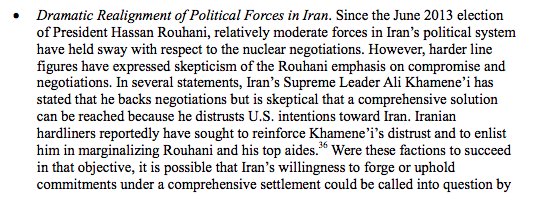
7. Katzman also explains that reimposing sanctions "could potentially strengthen the hardliners’ assertions that the United States cannot be trusted to end policies the hardliners describe as 'hostile' to Iran and its revolution." 

8. There is direct congruence in this analysis with Bozorgmehr's contemporary account. Why? Because the phenomenon she is reporting on is inherent to Iran's power dynamics. So much so that Katzman could explain the basic mechanisms *four years ago* as a hypothetical scenario.
9. But of course Katzman has commented on more recent events. Here he is writing in a CRS report just *four weeks ago*: "The US exit from the JCPOA in May 2018 has reportedly opened Rouhani to increased criticism from hardliners who had argued against accepting the JCPOA in 2015" 
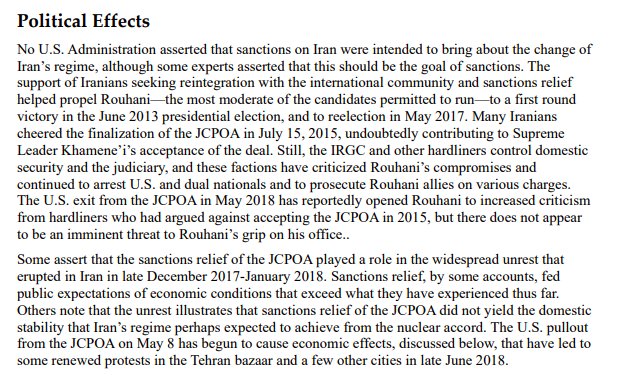
10. Nothing about the @FT report was inaccurate and to suggest so is disingenuous. You are certainly aware of the body of research and analysis—much of its from your own organization—that explains why such shifts among moderates and hardliners are now observable on the ground.
11. Let's not start shouting "fake news" or start calling all Iranian political actors "criminals" at the expense of an actual debate on the trajectory in #Iran.
• • •
Missing some Tweet in this thread? You can try to
force a refresh


